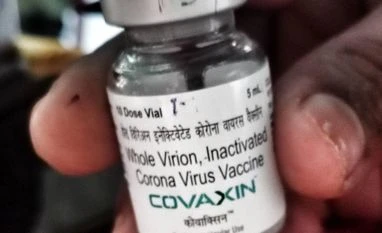A non-profit comprising epidemiologists, doctors, and public health experts has urged the Indian Council of Medical Research (ICMR) to “desist” from academic censorship. This follows ICMR's criticism of Banaras Hindu University (BHU) researchers for their study on Covaxin's side effects.
In an open letter to ICMR's director, Universal Health Organisation UHO emphasised the study's importance in providing field data on Covaxin's long-term safety. The letter, signed by the managing committee of the Mumbai-based group, stressed the need for transparency for the millions of Indian children who received Covaxin.
“It (ICMR) must certainly desist from academic censorship of the already small number of studies on Covaxin long-term safety. ICMR owes this to the lakhs of Indian children to whom Covaxin was administered, for these children have their entire life ahead of them,” said the letter.
"While we were hoping and expecting a research institution of repute such as ICMR to build upon this study, address its shortcomings, and elevate the standards of vaccine safety, we are aghast to come across letters sent by ICMR asking for the retraction of the paper, and threatening the authors of the study," said UHO.
Universal Health Organisation
Signatories included Prof. Bhaskaran Raman from IIT Bombay, Dr Amitav Bannerjee, Dr Gayatri Panditrao, Dr Praveen K. Saxena, Dr Veena Raghava, and Dr Maya Valecha.
UHO called on ICMR to prioritise vaccine safety, release Phase-3 trial data with long-term follow-up, and investigate the leak of private communications to the BHU study authors and Drug Safety Journal editor, which they termed harassment. They said ICMR had overreacted to author acknowledgments, suggesting simple private communication for any corrections.
“If ICMR does not wish to be acknowledged it can communicate this privately to the authors and the editor and an erratum can be issued – a routine matter in scientific publications,” the letter said.
More From This Section
ICMR calls BHU study ‘poorly designed’
The ICMR on Monday accused a group of researchers from Banaras Hindu University (BHU) for “erroneously” associating the medical body with a recent study on effects of Covaxin, saying that it was a “poorly designed” study.
ICMR, which is the country’s apex body for formulation, coordination, and promotion of biomedical research, has asked the researchers to remove the acknowledgement of ICMR from the study and publish an apology, or face a legal and administrative action.
“ICMR is not associated with this study and has not provided any financial or technical support for the research. Further you have acknowledged ICMR for research support without any prior approval of or intimation to the body, which is inappropriate and unacceptable,” a letter, addressed to the authors of the research paper and editor of the science journal in which it was carried, said.
Reports of Bharat Biotech’s Covaxin side effects
A report published by researchers at the BHU in Drug Safety (Springer) said people in India who took Bharat Biotech’s vaccine against Covid-19 have had adverse side effects, weeks after Anglo-Swedish drugmaker Astrazeneca admitted the same about its inoculation for the disease.
Nearly a third of the participants of an observational study on the side-effects of Bharat Biotech's Covaxin vaccine reported adverse events of special interest (AESI).
Among the 1,024 individuals enrolled, 635 adolescents and 291 adults were reachable for the one-year follow-up. The study found that 304 adolescents (47.9 per cent) and 124 adults (42.6 per cent) reported viral upper respiratory tract infections.
In adolescents, common AESIs included new-onset skin and subcutaneous disorders (10.5 per cent), general disorders (10.2 per cent), and nervous system disorders (4.7 per cent). In adults, common AESIs were general disorders (8.9 per cent), musculoskeletal disorders (5.8 per cent), and nervous system disorders (5.5 per cent).
)